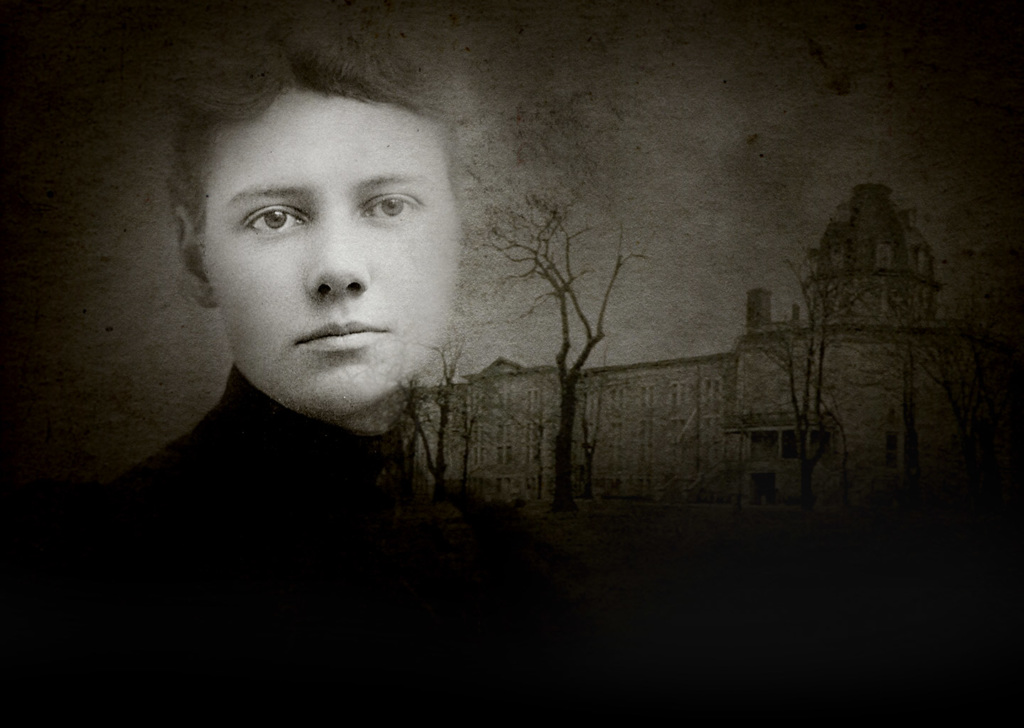International Women’s Day: Celebrating Nellie Bly

In reporting on conditions at the Women’s Lunatic Asylum, Nellie Bly followed these instructions: “Write up things as you find them, good or bad; give praise or blame as you think best, and the truth all the time.”
Today, on International Women’s Day, we honor a pioneer in investigative journalism: Nellie Bly.
Born Elizabeth Jane Cochran in western Pennsylvania in 1864, Bly began her newspaper career when she was only 20, covering women’s rights, child labor, dangerous conditions for factory workers and social justice reform for the Pittsburgh Dispatch. But when her articles angered some of the paper’s largest advertisers, the Dispatch assigned her to “women’s news” — and she left. She traveled to Mexico, where her reports on poverty and corruption so displeased the Mexican government that she had to leave the country.
Undeterred, she headed to New York City, where she landed a job at the New York World. For her first assignment, she feigned insanity and was sent to the Women’s Lunatic Asylum on Blackwell’s Island (now Roosevelt Island). With neither staff nor patients aware that she was a reporter, Bly took careful notes on what she witnessed, including the staff’s treatment of patients, the food and clothing provided and the practices of the institution’s administrators.
The instructions she got from her editor were these: “Write up things as you find them, good or bad; give praise or blame as you think best, and the truth all the time.”
That’s what Bly did. She described how a nurse refused her a nightgown during her first night as a patient. She noted how several patients were physically, not mentally, ill. Some, she found, were immigrants who were there only because they couldn’t speak English. She concluded that the environment drove even mentally healthy patients to the point of insanity because of the poor conditions and treatment.
Grand jury investigation
Bly’s articles led to significant change. She had reported the truth, and it spurred a grand jury investigation. In the book Ten Days in a Mad-House, a collection of her reports, she wrote: “Since my experiences in Blackwell’s Island Insane Asylum were published in the World … the City of New York has appropriated $1,000,000 more per annum than ever before for the care of the insane. So I have at least the satisfaction of knowing that the poor unfortunates will be the better cared for because of my work.”
She earned a reputation as a muckraker, uncovering stories that people in power didn’t want exposed: corruption in the state government, the treatment of women held in police jails and the exploitation of young women by false “job-training programs,” to name a few. She also gained worldwide fame through her quest to travel around the world faster than the character Phineas Fogg did in Jules Verne’s novel Around the World in Eighty Days. (She did it in 72.)
Nellie Bly set a tremendous example for future generations of women in journalism who hold public officials and institutions accountable. The role of the press as democracy’s watchdog has never been more important, and reflecting on trailblazers such as Bly helps us understand why.
Learn more about Bly in “Democracy’s Watchdog,” a lesson in our Checkology® virtual classroom.